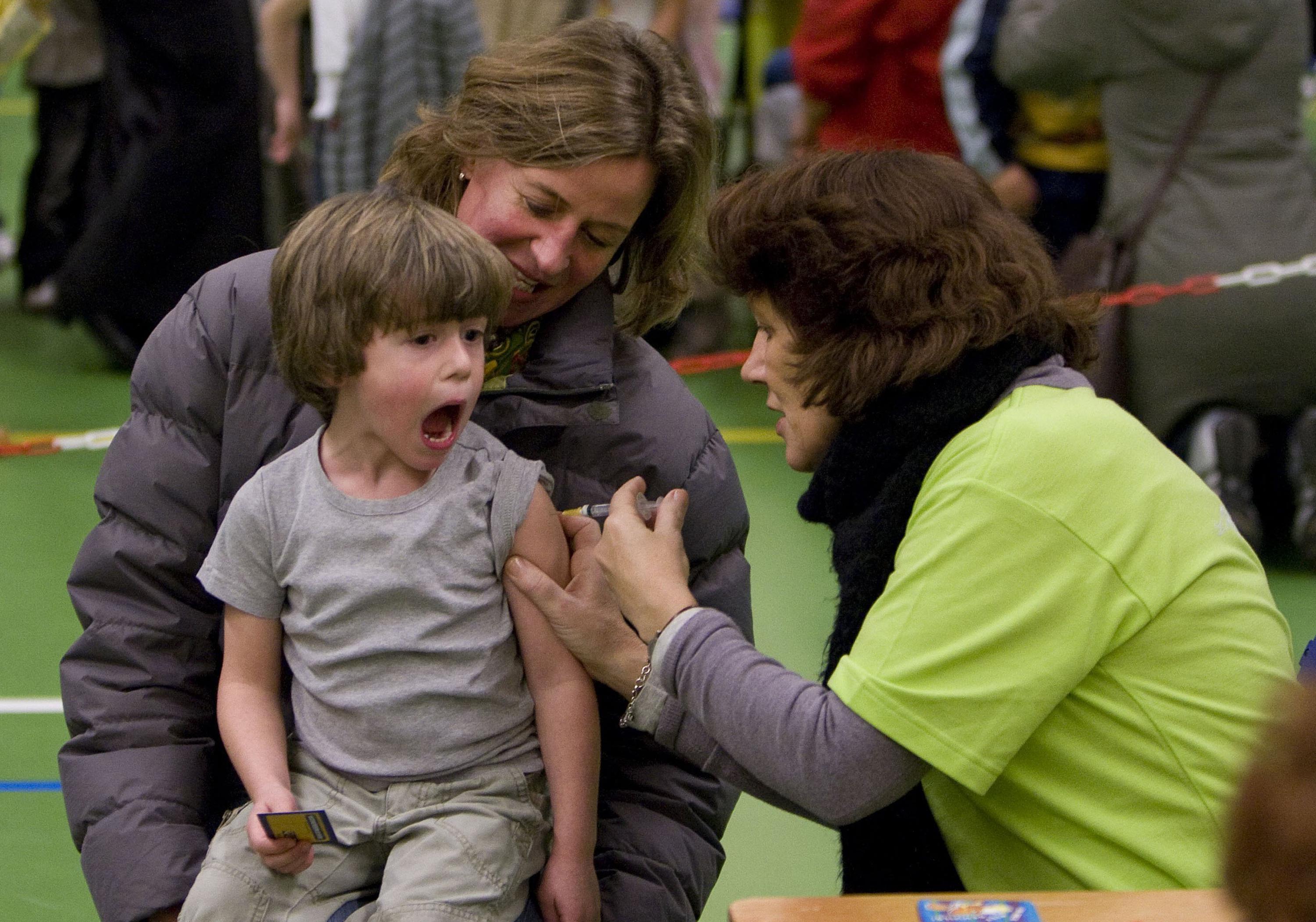While some false beliefs, such as astrology, are fairly harmless, parents who believe falsely that vaccination is dangerous or unnecessary for children present a real public health hazard. That’s why researchers, publishing in Pediatrics, decided to test four different pro-vaccination messages on a group of parents with children under 18 and with a variety of attitudes about vaccination to see which one was most persuasive in persuading them to vaccinate. As Chris Mooney reports for Mother Jones, the results are utterly demoralizing: Nothing made anti-vaccination parents more amendable to vaccinating their kids. At best, the messages didn’t move the needle one way or another, but it seems the harder you try to persuade a vaccination denialist to see the light, the more stubborn they get about not vaccinating their kids.
Brendan Nyhan of Dartmouth College and his colleagues tested four different messages on parents. Mooney describes them:
The first message, dubbed “Autism correction,” was a factual, science-heavy correction of false claims that the MMR vaccine causes autism, assuring parents that the vaccine is “safe and effective” and citing multiple studies that disprove claims of an autism link. The second message, dubbed “Disease risks,” simply listed the many risks of contracting the measles, the mumps, or rubella, describing the nasty complications that can come with these diseases. The third message, dubbed “Disease narrative,” told a “true story” about a 10-month-old whose temperature shot up to a terrifying 106 degrees after he contracted measles from another child in a pediatrician’s waiting room.
The fourth message was to show parents pictures of children afflicted with the diseases they could get without vaccination. Both the pictures and the horrible story about measles increased parental fears about vaccinations. Researchers don’t know why but theorize that the problem might be that invoking fears of sick children just makes parents more fearful in general of all risks, whether real or imagined. The cooler, more distant “disease risks” message didn’t change parents’ minds either way, but what was most startling was what happened with the message correcting misinformation on autism:
As for “Autism correction,” it actually worked, among survey respondents as a whole, to somewhat reduce belief in the falsehood that vaccines cause autism. But at the same time, the message had an unexpected negative effect, decreasing the percentage of parents saying that they would be likely to vaccinate their children.
In other words, learning that they were wrong to believe that vaccines were dangerous to their kids made vaccine-hostile parents more, not less likely to reject vaccination. Mooney calls this the “backfire effect,” but feel free to regard it as stubborn, childish defensiveness, if you’d rather. If you produce evidence that vaccination fears about autism are misplaced, anti-vaccination parents don’t apologize and slink off to get their kids vaccinated. No, according to this study, they tend to double down.
This reaction, where people become more assured of their stupid opinions when confronted with factual or scientific evidence proving them wrong, has been demonstrated in similar studies time and time again. (This is why arguing with your Facebook friends who watch Fox News will only bring you migraines.) Mooney suggests that state governments should respond by making it harder to opt out of vaccinations. That would be helpful, but there’s also some preliminary research from the James Randi Educational Foundation and Women Thinking Inc. that shows that reframing the argument in positive terms can help. When parents were prompted to think of vaccination as one of the steps you take to protect a child, like buckling a seat belt, they were more invested in doing it than if they were reminded that vaccine denialists are spouting misinformation. Hopefully, future research into pro-vaccination messaging, as opposed to just anti-anti-vaccination messaging, will provide further insight.
Correction, March 4, 2014: This post originally referred to Dartmouth College as Dartmouth University.
